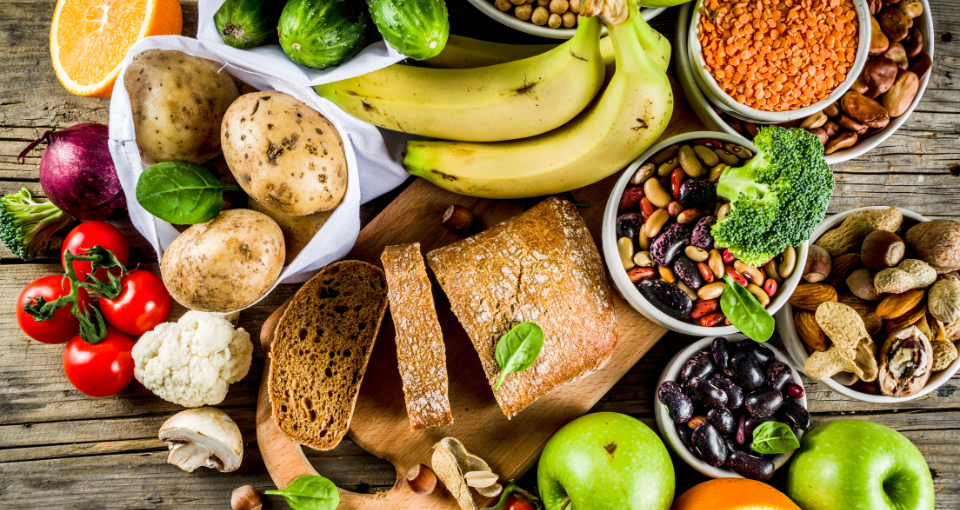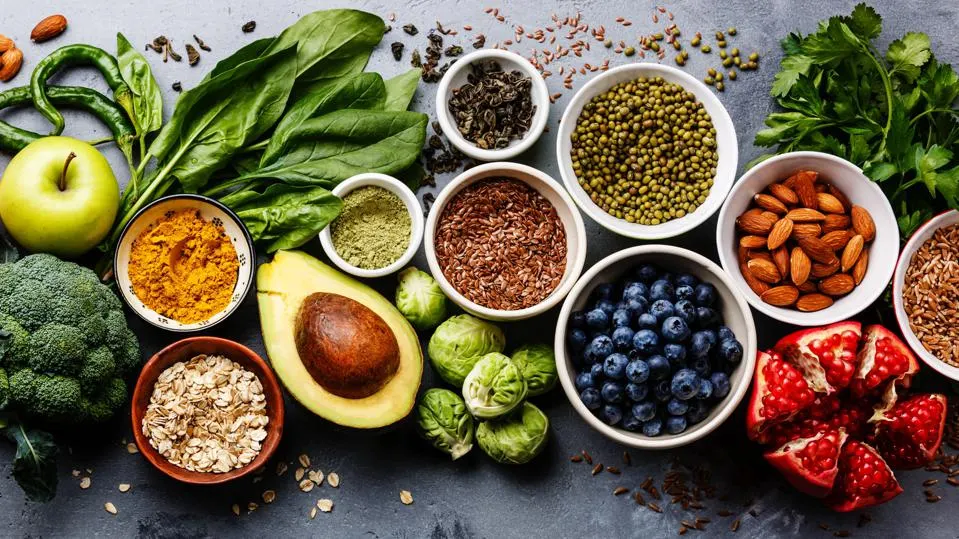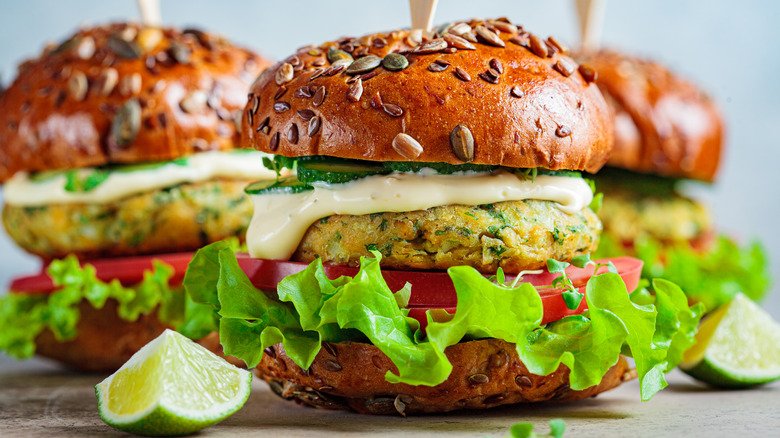As we age, especially after 50, our nutritional needs change, and maintaining a healthy diet is crucial for overall wellness. A diet that promotes heart health, bone strength, and weight management is key to staying strong and energized. Experts recommend focusing on nutrient-dense foods, such as high-quality protein, healthy fats, fiber, and calcium-rich options to support muscle mass and bone density. Including heart-healthy choices like leafy greens, nuts, seeds, and fatty fish can also significantly reduce the risk of chronic conditions like heart disease. It’s important to adjust your intake of these foods to account for changes in metabolism and hormone levels that occur with age
Table of Contents
Our dietary needs evolve, and it becomes even more important to focus on nutrient-dense foods. According to Marie Bernard, M.D., chief officer for scientific workforce diversity at the National Institutes of Health (NIH), older adults should prioritize a diet rich in fruits and vegetables, lean proteins such as chicken and fish, and minimize their intake of saturated fats and sugars. This approach helps manage weight, supports heart health, and reduces the risk of chronic diseases as metabolism and hormone levels change with age.
1. Food
Protein
As women age, maintaining an adequate intake of protein becomes increasingly important to support muscle mass, bone health, and metabolism. High-protein foods like lean meats, eggs, dairy, legumes, and plant-based protein sources such as tofu or quinoa are great options for women over 50. Protein helps to preserve muscle tissue, which naturally declines with age, and plays a critical role in bone density, especially when paired with weight-bearing exercises. Consuming enough protein also supports immune function, improves satiety, and can aid in weight management, helping prevent chronic diseases associated with aging (Harvard Health, 2023).
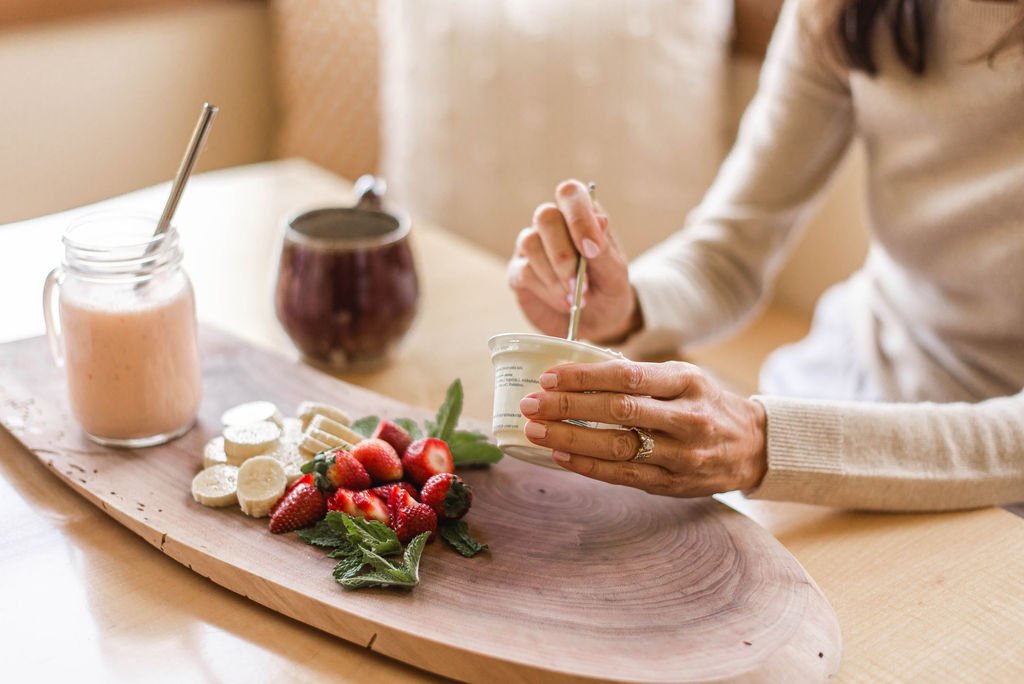
Carbohydrates
Carbohydrates are important for your health and provide you with energy. However, it’s important to focus on complex carbohydrates rather than simple sugars. Complex carbohydrates, found in whole grains, fruits and vegetables, provide you with long-lasting energy, fiber and important nutrients. Fiber is particularly good for your gut health and can help you control your blood sugar levels, which is important if you want to prevent type 2 diabetes.
Fats
The brain, hormone production and cell health all depend on healthy fats. Unsaturated fats are good for women over 50 and can be found in foods such as olive oil, nuts, seeds, bananas and more. You can get omega-3 fatty acids from high-fat foods such as salmon and sardines. These acids help reduce inflammation and keep your heart healthy. Reducing your intake of saturated fats and trans fats can help control cholesterol levels and reduce your risk of heart disease.
2. Micronutrients
Vitamin C
Calcium is important for keeping bones strong and preventing osteoporosis, which is more common in women after menopause. Women over 50 need about 1,200 milligrams of calcium per day. Dairy products, calcium-fortified plant-based milk alternatives, green leafy vegetables and calcium-fortified foods are all good sources of calcium. In some cases, calcium supplementation may be necessary, but it is best to consult your doctor before taking supplements.
Vitamin D
Vitamin D is important for bone development and calcium absorption. It also helps the immune system function and keeps the mind stable. Women over 50 should get about 600 to 800 IU of vitamin D per day. Vitamin D is found in sunlight, oily fish, fortified dairy products and take a vitamin D supplement if necessary. Regular blood tests can help determine if supplements are needed.
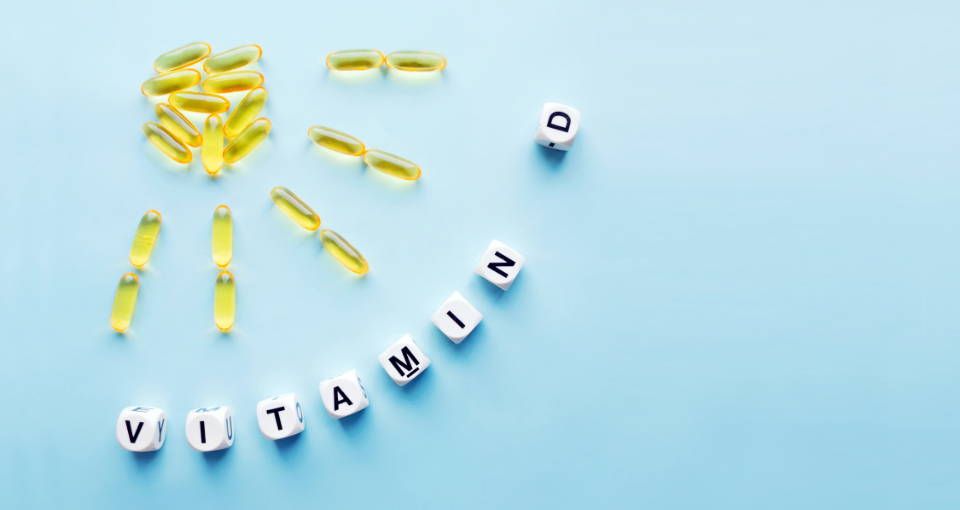
Vitamin B12
Vitamin B12 is necessary for nerve function, making red blood cells and making DNA. As people get older, they may no longer be able to get vitamin B12 from food. Women over 50 should get this much vitamin B12 every day. Meat, chicken, fish, dairy products and grains with added vitamins and minerals are all good sources. If digestive problems are suspected, vitamin B12 supplementation may be recommended.
Folic Acid
Folic acid, also known as vitamin B9, aids in cell division and healing. It works together with vitamin B12. Getting enough folic acid can help reduce your chances of heart disease and improve your overall health. The folate level for women over 50 years old should be about 400 micrograms per day. Folic acid is found in green leafy vegetables, legumes, nuts and fortified foods.
Iron
Iron is important for air circulation and energy production. Postmenopausal women, on the other hand, need less iron than premenopausal women because they no longer menstruate. You should take approximately 8 mg per day. Fortified grains, beans, lentils, lean meats and dark green leafy vegetables are all good sources. Your body absorbs iron better if you eat iron-rich foods with foods rich in vitamin C, such as citrus fruits or bell peppers.
3. Hydration
Why Water is Important
Staying hydrated is important for your overall health because it aids digestion, keeps your skin supple, and prevents the formation of kidney stones. It’s important for older adults to remember to drink water throughout the day because they may feel less thirsty Adding more protein- and fiber-rich foods to your diet can help control your weight and reduce hunger.

Heart Health
Limiting saturated fats and trans fats, reducing sodium intake and eating more fruits, vegetables and whole grains are all part of a heart-healthy diet. Berries and green leafy vegetables are two antioxidant-rich foods that can help reduce inflammation and improve heart health.
Bone Health
In addition to calcium and vitamin D, foods rich in magnesium and vitamin K can also help maintain bone health. Iron and vitamin K, found in fresh vegetables, nuts, seeds and whole grains, help your bones function.
4. Special Dietary Requirements
Women over 50 who have long-term health problems such as diabetes, high blood pressure or high cholesterol should adjust their diet to better control these problems. A healthcare provider or nutritionist can help you create a personalized eating plan that meets your health needs.
Food Sensitivities or Allergies
If you develop a food allergy or sensitivity, you may need to change your diet to avoid the foods that cause problems while still getting enough nutrients. Talk to your doctor or nutritionist to find good options and stay nutritionally balanced.
Conclusion
For women over 50, staying healthy means focusing on a balanced diet and taking their changing dietary needs into account. Getting enough protein, healthy fats, complex carbohydrates and important vitamins and minerals can improve your health, protect you from chronic diseases and improve your overall life. It’s also important to stay hydrated, watch your weight, and make sure your food meets your health needs. Women over 50 can live and maintain full, healthy lives by eating carefully and seeking professional help when necessary.
Disclaimer: The content in this article is based on my personal experiences and is intended for informational purposes only. I am not a doctor or medical professional. Always consult with a healthcare provider before making any changes to your exercise routine or lifestyle, especially if you have any health concerns or conditions.
My mission is to celebrate the wisdom, resilience, and vitality of women as they navigate menopause, embrace life’s transitions, and step confidently into the next phase. Whether you’re exploring ways to stay fit, looking for health tips to prevent common issues, seeking inspiration for a fulfilling lifestyle, or simply wanting guidance on diet, I’ve got you covered.
Dive into our articles on fitness, health, lifestyle, nutrition and more to find the support and insights you need!

